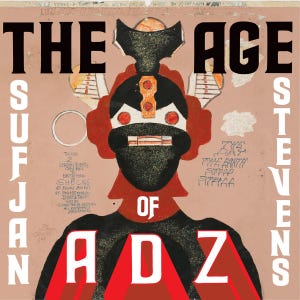Fugue States: An Introduction
Schizophrenia may be the least talked-about thing in the world.
When I was seven or twelve or so, my mother's presiding psychiatrist spent a morning explaining schizophrenia to me. The social workers had long run out of answers to my questions and the stakes were getting higher. Mum’s condition was worsening, which was affecting school and life, and her conspiratorial denial of treatment was threatening to affect my young worldview.
I remember the shrink as a patient, middle-aged man in a button-down shirt—a kind, if tired, professional. Most of all, I remember how thorough he was.
He detailed symptoms, theories, and experiences of psychosis. He described the strengths and limitations of modern institutional care, the uncertainties of the schizophrenia diagnosis, and decades of mum's medical history and noncompliance. He explained the bed shortage at the local psychiatric hospital, the brutish but useful medications, and the small army of nurses required to keep the whole system running.
This is a lot for a child.
It also made me feel safe in a way that I had never before.
Schizophrenia may be the least talked-about thing in the world.1 You likely won't know what that means until you know someone with it.
There is a person in your family tree, circle of friends, or network who sometimes says odd things. Maybe they aren't invited to events anymore, but no one explains quite why. There are a couple of people who stay closer to them, but it’s difficult.
No one talks about it.
The thing is unpredictable in how it ebbs and flows. The person is rarely who they were before, but sometimes they are, or almost are. For the most part, they are living with it, and doing a tremendous job at that. Still, the nature of the thing means they can be volatile. When they're at their worse, they're difficult, frightening, and they don't take care of themselves; at their better, they can be quite brilliant, creative, and spiritual.
Still, no one talks about it. Some write about it, but the talking is hard.
Your friends baulk, clam up, glaze over, go distant when it comes up. It’s often confusing and frightening, after all. There is a kind of irresolvable, shameful grief to it. It's not clear how to describe what has happened, or if you even want to. You can't quite make sense of it. It hurts. Makes your chest tight.
People rarely call it by its name. If there is a diagnosis, it's shared in hushed tones, or not at all.
This, of course, does not even account for the experience of the thing itself.

One in three hundred people have what we diagnose as schizophrenia. If Sapolsky is to be believed, it's quite consistent across geographies and demographics. For all the difficulty of the thing—having it, knowing someone with it—there is no reason why anyone should feel alone.
I'm not sure you can make peace with something without understanding it. And you have to reckon with something—that is, choose to tap in and wrestle with it, develop the nuance and empathy, and do the tough work to process the whole damn thing—to understand, and you have to understand to make peace.
The safety I felt as a child was that kind of peace.
For me, there have been exactly four things that have helped me “reckon with” mum's schizophrenia. The conversation with her psychiatrist was the first. The others were an article, a lecture, and a book.
I think of these as ins. They are gates: entry points onto the winding path of wrestling with the reality of the thing. They can be literary, artistic, scientific, or personal.
My goal here is to collect as many of these ins as possible. I will analyse them as we go, constructing a living map and incidental history of the thing. Fugue States will also surface the lived experiences of people with, and people adjacent to people with, schizophrenia.
In doing so, I hope to construct a field guide to reckoning with schizophrenia: a place where anyone can come for help making sense of the thing. Pick a gate. See if it helps. If it doesn't, try another. And another. One will, I'm sure.
And then maybe we can talk about it.
If you would like to contribute to Fugue States (for example, by sharing an "in" or speaking about your relevant experiences, so we can crystallise it into something shareable), please reach out at cb@clarebir.ch
Credit to Justin Heazlewood for this concept!


